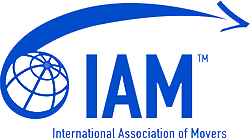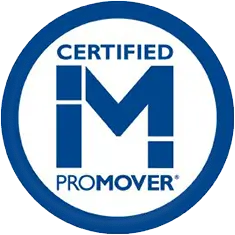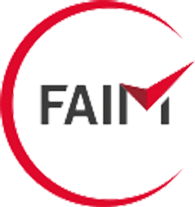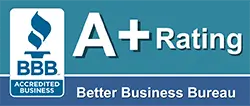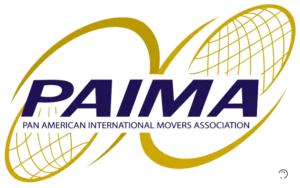International customs play a crucial role in facilitating global trade and ensuring that goods move smoothly across borders. As trade continues to evolve, understanding the nuances of customs can significantly impact businesses and individuals alike. This article provides insights from FIDI’s comprehensive guides, which are tailored to help navigate the complexities of international customs.
Understanding the Importance of International Customs
International customs are vital for maintaining order and security in global trade. They regulate the flow of goods and services between countries, ensuring that all transactions comply with the respective laws and policies. This role is increasingly important in a world where cross-border commerce is thriving.
The Role of Customs in Global Trade
The primary function of customs is to enforce trade laws. Customs authorities scrutinize goods to determine their compliance with tariffs and regulations, collect necessary duties, and prevent illegal trade practices. Their role extends beyond taxation; they also uphold national security by monitoring the entry of potentially harmful goods.
Moreover, customs authorities facilitate trade by streamlining processes, thereby minimizing delays in the shipment of goods. This promotes smoother transitions for businesses engaging in international commerce and contributes to the stability of the global supply chain. In an era marked by rapid technological advancements, customs agencies are increasingly adopting digital tools and automated systems to enhance efficiency. These innovations allow for real-time tracking of shipments, reducing the time goods spend in transit and further supporting businesses in meeting their delivery commitments.
Key Functions of Customs Authorities
Customs authorities are responsible for several key functions, including import and export controls, enforcement of trade regulations, and tariff collection. They also coordinate with other government agencies to ensure comprehensive security and compliance measures are in place.
Additionally, customs authorities provide vital support through the dissemination of information regarding customs regulations and procedures. This ensures that traders are well-informed about the necessary requirements, allowing for seamless operations. Furthermore, customs agencies often engage in training programs and workshops for businesses, helping them navigate the complexities of international trade. By fostering a better understanding of customs processes, these initiatives not only empower businesses but also contribute to a more robust and compliant trading environment.
Insights from FIDI’s Comprehensive Guides
FIDI’s guides serve as valuable resources for navigating the intricacies of international customs. These guides offer practical insights, enabling businesses to understand customs regulations better and enhance their compliance strategies. With the global market becoming increasingly interconnected, the importance of these guides cannot be overstated, as they provide a framework for businesses to operate smoothly across borders.
Decoding FIDI’s Approach to International Customs
FIDI emphasizes a thorough understanding of local customs regulations, advising businesses to familiarize themselves with the specific customs requirements of each country they engage with. This tailored approach helps mitigate potential customs issues and fosters smoother international operations. By taking the time to research and understand the nuances of each jurisdiction, companies can avoid costly mistakes that might arise from ignorance or oversight.
Furthermore, FIDI encourages proactive communication with customs authorities. Establishing a rapport can facilitate faster resolutions to queries and issues, greatly benefiting the overall efficiency of customs processes. Regular dialogue not only aids in clarifying regulations but also builds a network of contacts that can be invaluable during urgent situations, such as unexpected inspections or changes in policy.
Key Takeaways from FIDI’s Guides
Among the key takeaways from FIDI’s comprehensive guides are the importance of accurate documentation and adherence to timelines. Businesses must ensure that all customs documentation is complete and timely submitted to avoid penalties and delays. This diligence can significantly reduce the risk of goods being held up at borders, which can lead to financial losses and disrupted supply chains.
Additionally, FIDI stresses the significance of adopting transparent practices. Clear communication and record-keeping can help in case of audits or inspections, reinforcing trust between stakeholders and customs authorities. By maintaining meticulous records of transactions, correspondence, and compliance efforts, businesses not only prepare themselves for potential scrutiny but also create a culture of accountability that can enhance their reputation in the global marketplace. This transparency can lead to better relationships with customs officials, who may be more inclined to work collaboratively with businesses that demonstrate a commitment to compliance and ethical practices.
Navigating Customs: Practical Tips and Strategies
Successfully navigating customs can be challenging, but with adequate preparation and strategic planning, businesses can overcome these hurdles. Here are several practical tips to enhance your customs clearance process.
Preparing for Customs Clearance
Preparation is key to ensuring a smooth customs clearance process. Begin by reviewing the specific customs regulations of the destination country. Understanding these regulations enables businesses to effectively gather and prepare the necessary documentation.
Additionally, establishing a clear timeline for your shipments is crucial. Anticipating timelines allows for buffer periods to address any unexpected challenges that may arise during the clearance process. It’s also wise to consider seasonal fluctuations in shipping volumes, as peak periods can lead to longer wait times and increased scrutiny from customs officials.
Dealing with Customs Documentation
Accurate and complete documentation is fundamental to successful customs clearance. Businesses must ensure that all paperwork, including invoices, packing lists, and shipping labels, is precise and adheres to the destination country’s requirements.
Furthermore, maintaining up-to-date records can aid in streamlining processes. This not only facilitates efficient customs clearance but also provides a robust audit trail should any challenges arise. In addition to standard documents, businesses should familiarize themselves with any specific certifications or permits required for their products, as these can vary widely depending on the nature of the goods and the importing country’s regulations. For example, certain food items may require health certificates, while electronics might need compliance documentation to meet safety standards.
Moreover, leveraging technology can significantly enhance the documentation process. Utilizing customs management software can help automate the generation of necessary documents and ensure compliance with the latest regulations. This not only reduces the risk of human error but also speeds up the overall clearance process, allowing businesses to focus on their core operations rather than getting bogged down in paperwork.
Overcoming Common Customs Challenges
Customs procedures are not without their challenges. Businesses often face issues such as delays in clearance and the risk of violating customs regulations. Addressing these concerns proactively can mitigate potential setbacks.
Addressing Customs Delays
Delays are a common occurrence in customs, but they can often be anticipated and managed. To address potential delays, businesses should engage in detailed pre-shipment planning and establish contingency plans.
Moreover, effective communication with customs authorities can lead to quicker resolutions when delays do occur. Being transparent and responsive can significantly ease the customs clearance process.
Mitigating Risks of Customs Violations
Customs violations can result in severe penalties and damage to a business’s reputation. To avoid such risks, businesses must invest in ongoing education regarding customs regulations and compliance requirements.
Utilizing technology such as customs management software can further enhance compliance efforts. Such tools can help monitor regulatory changes, track shipments, and ensure that all customs documentation is accurate and timely.
The Future of International Customs
The landscape of international customs is constantly evolving due to globalization and technological advancements. Understanding these changes can prepare businesses for future challenges while maximizing opportunities.
Emerging Trends in Customs Procedures
Emerging trends indicate a shift towards more automated customs procedures. Automation promises to streamline customs functions, reduce delays, and improve accuracy in documentation handling.
Additionally, with the rise of e-commerce, customs procedures will continue to adapt to accommodate the rapid growth in small parcel shipping, requiring heightened attention to compliance and regulations.
The Impact of Technology on Customs Processes
Technology is transforming customs processes across the globe. From electronic filing to artificial intelligence-driven analytics, these advancements enhance efficiency and reduce human error.
Businesses that leverage technology not only improve their customs processes but also gain a competitive edge in the global marketplace. Staying abreast of technological developments will be essential for successful navigation of international customs in the years to come.









